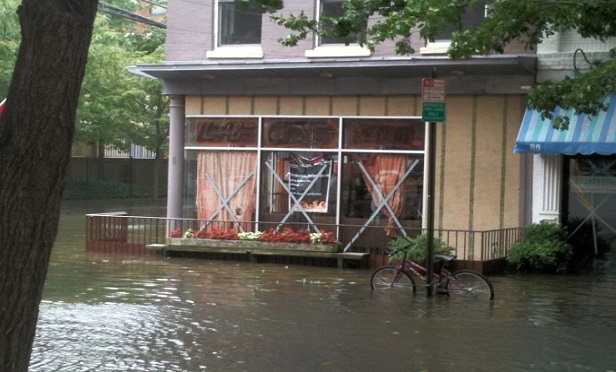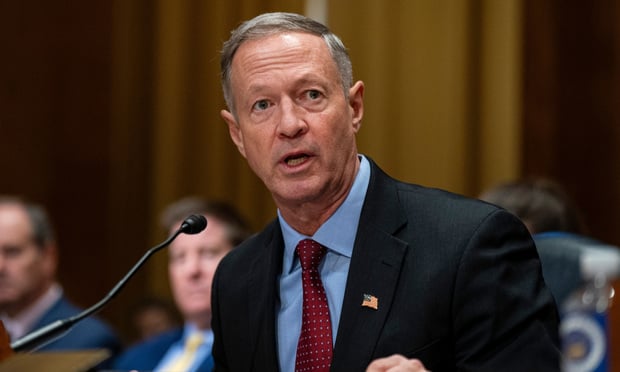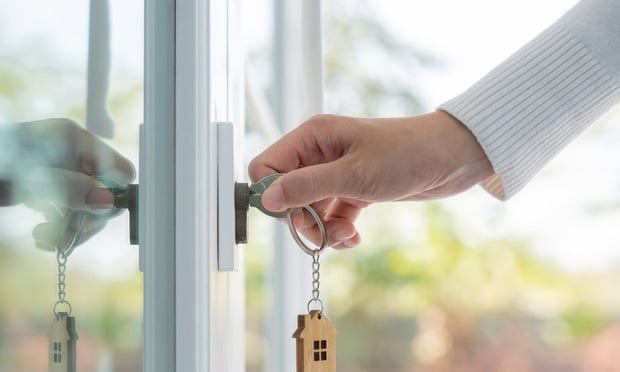 (Photo: Allison Bell/ALM)
(Photo: Allison Bell/ALM)
As if the COVID-19 pandemic weren't enough to worry about, 61% ofAmericans in a recent survey said they were likely to be personallyaffected by a natural disaster in the next three to fiveyears, with 19% saying this was highly likely, the AmericanInstitute of CPAs reported.
|However, only 15% of respondents said they had created adisaster plan to protect their finances. Worse, 27% had not takenany steps at all to prepare for a natural disaster.
|Related: Business continuity plans: The newpreparedness for the new normal
|Concern about natural disasters is not unwarranted. Last yearmarked the fifthconsecutive year that 10 or more weather and climate disasterswith at least $1 billion of associated losses occurred in theU.S.
|"In the face of a natural disaster, protecting your family fromharm should be your primary concern," GregoryAnton, chair of the AICPA's National CPA Financial LiteracyCommission, said in a statement.
|Related: When natural disasters and emergenciesstrike: Retirement hardship distributions
|"During the recovery process, access to financial resources andpersonal information is critically important. Taking action to puttogether a plan today will help protect your family and yourfinances should you ever find yourself impacted by a naturaldisaster."
|The Harris Poll conducted the online survey within the U.S.between in early November among 2,050 adults.
|Thirty-seven percent of survey participants admitted that theydid not have a good sense of how much recovering from a naturaldisaster would cost their family financially.
|Seven in 10 said such an event would have a major or moderateeffect on their financial situation, including one in three whosaid there would be a major impact.
|"It is a good idea to run through the calculations for potentialdamage, finding temporary housing and other recovery costs, so youcan check to see if you would have enough cash on hand to coverit," Anton said.
|"Review your insurance to be sure you have the right amount ofcoverage and that you're not overpaying. Make sure you know what iscovered and don't be afraid to comparison shop periodically to seeif switching makes sense."
|Pollsters found good news in the fact that 73% of Americans hadtaken at least one step to prepare for a natural disaster. Thesewere the actions they reported taking:
- 34% assembled a disaster supplies kit
- 32% created an evacuation plan
- 31% backed up and stored personal, medical and financialrecords in a safe, accessible place
- 27% evaluated insurance needs to ensure adequate coverage
- 26% took an inventory of assets and possessions for insurancepurposes
- 24% contributed to an emergency saving account
- 19% created or updated an estate plan and/or will
- 19% purchased additional insurance
- 15% created a disaster plan to protect finances
The outliers were those who had taken no action to prepare for anatural disaster.
|"If you haven't filed your taxes yet this year, you have theopportunity to cross two 'to-dos' off your list at the same time,"Neal Stern, member AICPA's National CPA Financial LiteracyCommission, said in the statement.
|"After filing, take it a step further and organize yourimportant documents and put them in a safe place. Even if you neverexperience a disaster, the peace of mind gained from organizingyour records is well worth the few hours spent on this importanttask."
|COVID-19 and disaster planning
Many Americans' lives have been disrupted by the coronaviruspandemic, complicating the process of preparing a plan to protecttheir finances from the next natural disaster. Add to that,government and institutional responses may be slower than usual torespond at present.
|The AICPA suggested several areas in which American could get ahead start:
|Banking without the bank. If faced with a closed bankbranch because of the pandemic, investigate alternative ATMlocations that do not charge additional fees for using a card toobtain cash. In addition, mobile banking can allow most bankingactivities, including check deposits and transfers betweenaccounts.
|Insurance coverage. Review coverage with an insuranceagent to ensure homeowner's or renter's insurance is up to date forchanges in value, valuable items that have been added like jewelryor watches, and special risks like flooding. As a first step, knowhow to contact the agent, who may be working remotely or with areduced staff under current conditions.
|Safe deposit box. For documents in a safe deposit boxthat may be needed after a disaster, check with the bank's mainoffice to find out how to access the box if the local branchholding it is closed or operating under restrictions.
|Wills, powers of attorney and health care proxies. Legalpaperwork should be up to date in the event a disaster results inincapacity, death of a loved one or serious injury. If papers needan update, it pays to contact the attorney or other professionalsahead of time as they may be working remotely underpandemic-related conditions.
|Employment-based programs. An employer's HR departmentmay be closed because of the pandemic and so unable to help managean employee's financial survival in a disaster. It is wise to learnnow how to get needed information — disability coverage or abilityto borrow from a 401(k) or similar retirement plan — and requestany needed updates by phone or online.
|READ MORE:
Complete your profile to continue reading and get FREE access to BenefitsPRO, part of your ALM digital membership.
Your access to unlimited BenefitsPRO content isn’t changing.
Once you are an ALM digital member, you’ll receive:
- Critical BenefitsPRO information including cutting edge post-reform success strategies, access to educational webcasts and videos, resources from industry leaders, and informative Newsletters.
- Exclusive discounts on ALM, BenefitsPRO magazine and BenefitsPRO.com events
- Access to other award-winning ALM websites including ThinkAdvisor.com and Law.com
Already have an account? Sign In
© 2024 ALM Global, LLC, All Rights Reserved. Request academic re-use from www.copyright.com. All other uses, submit a request to [email protected]. For more information visit Asset & Logo Licensing.








